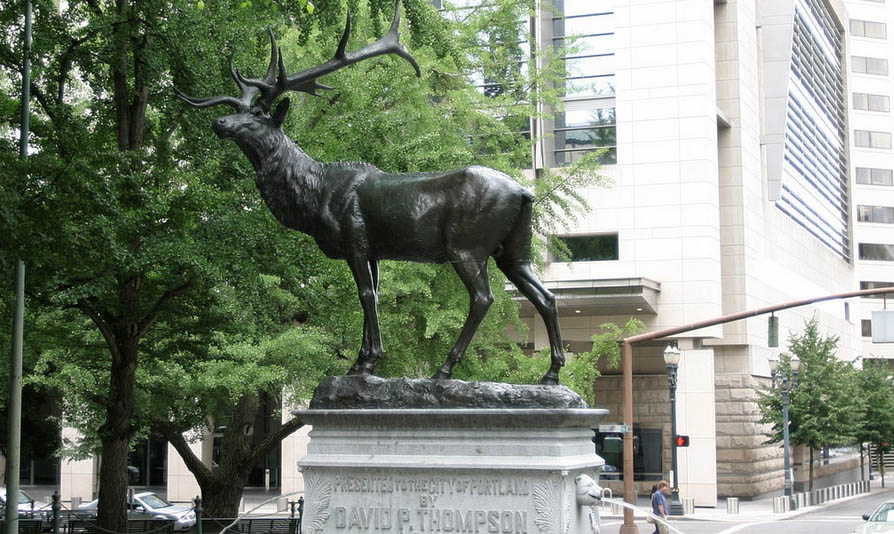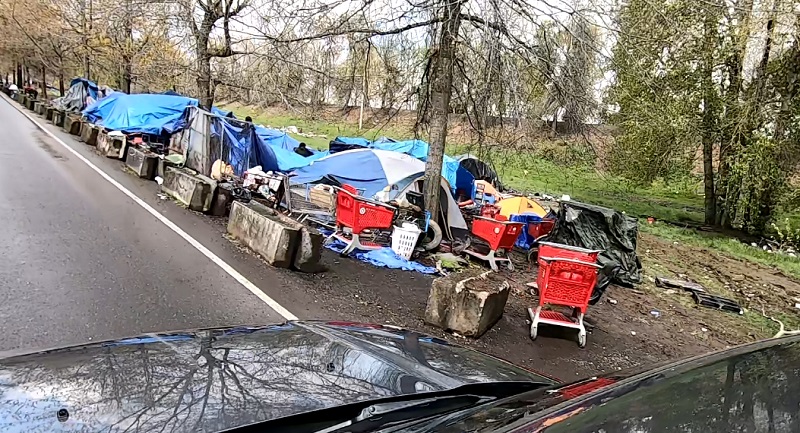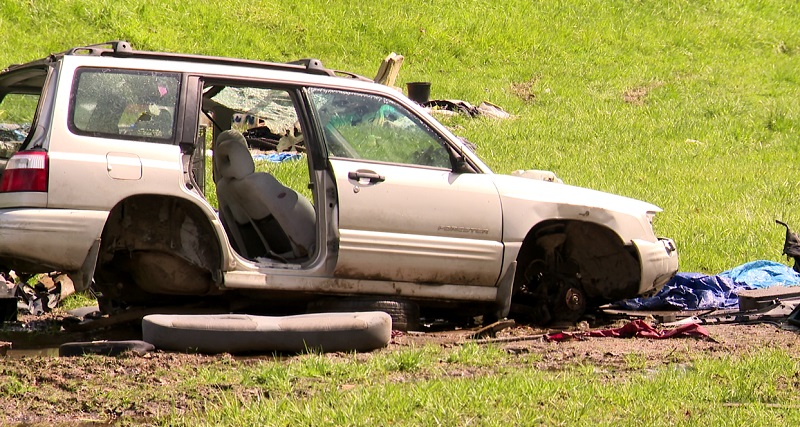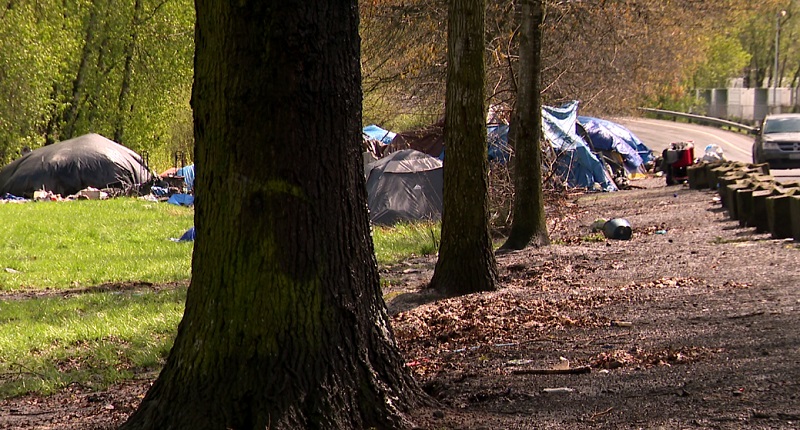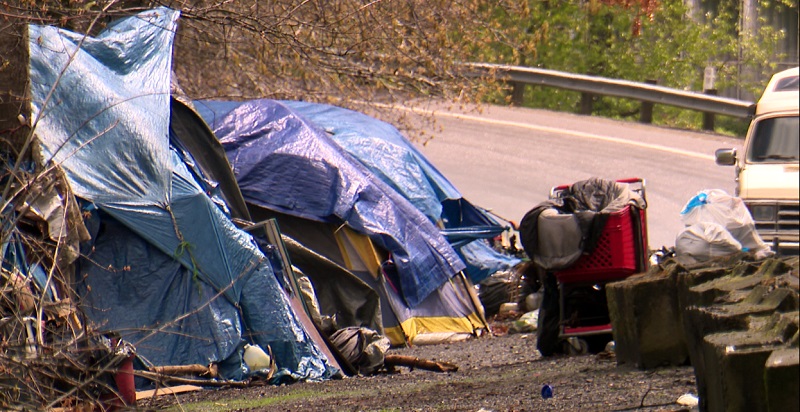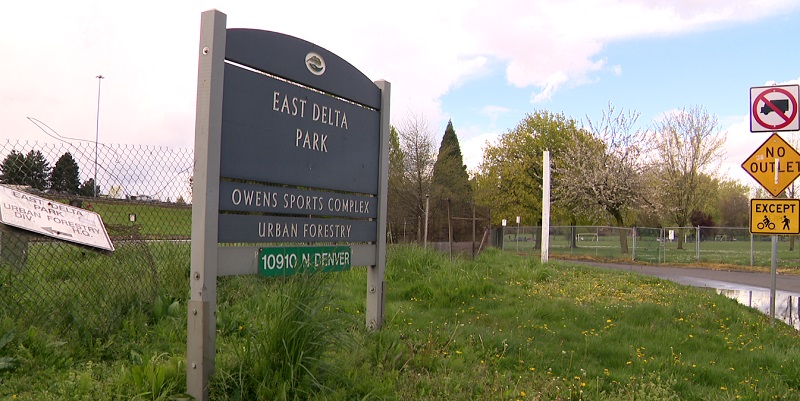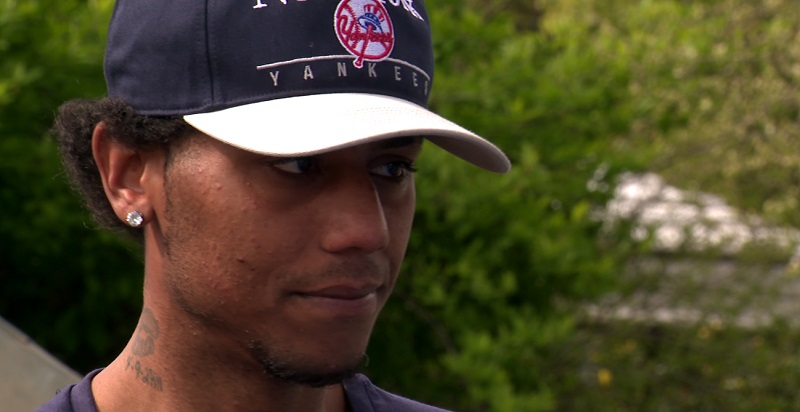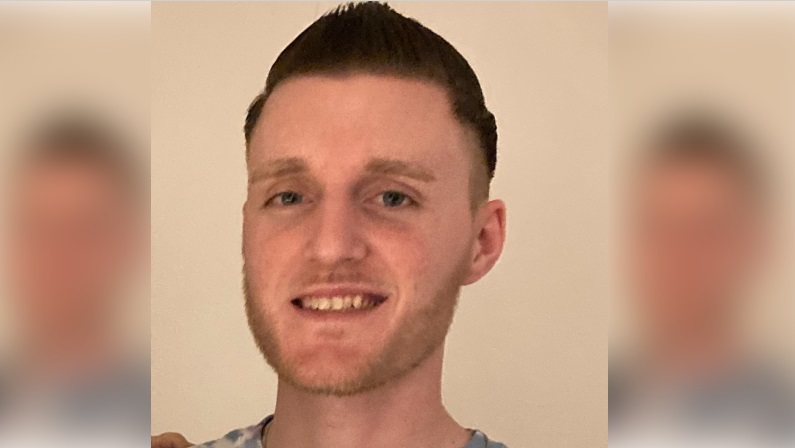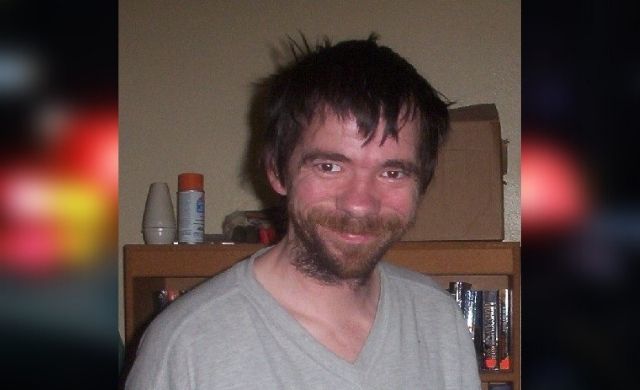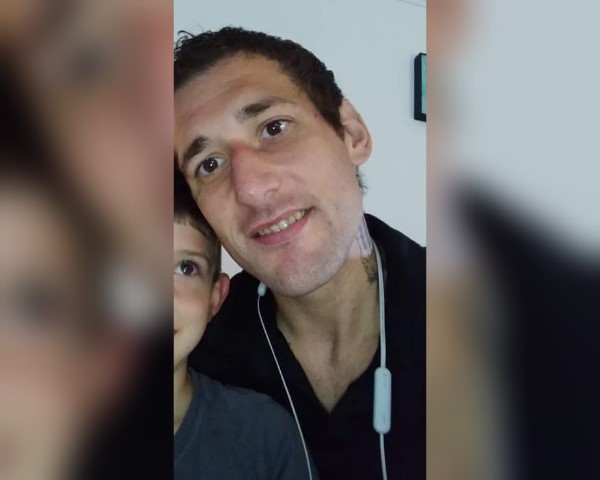PORTLAND, Ore. (KOIN) — Recently Dr. Phil shined his national spotlight on Portland’s homeless crisis, even using some of the KOIN 6 News special reports, “Is Portland Over?” to help focus the discussion.
His guests pointed out what Portlanders know: the homeless epidemic can’t be solely blamed on the lack of affordable housing. There is a growing addiction and mental health crisis fueling the large numbers of men and women living on the streets.
“The reason we have homelessness,” said Donald Whitehead, Jr., the Executive Director of the National Coalition for the Homeless, “is we have never scaled the resources to the problem.”
For the last decade, Multnomah County has pursued a homeless policy of housing first. Yet the homeless problem has gotten worse. Many experts now say getting people off the streets immediately into shelters and into recovery needs to be Portland’s top priority.
‘It beats the bricks, brother’
In San Diego, Bob McElroy heads up Alpha Project, a homeless navigation center that is home to almost 300 men and women. It’s a mini-city, a community with showers, laundry, pet services, medical and legal counseling. But, most importantly, it has addiction and mental health services.
Leaders in Portland and Multnomah County have called large transitional shelters like the ones at Alpha Project warehousing people and inhumane.
“Ask the people here, do they feel warehoused? We didn’t force anybody to come in here,” McElroy told KOIN 6 News. “We have waiting lists for people to get in here, to start the process of recovery. And all the services are here. Their food is here. Their beds, their supplies. They’re safe here. Their pets are here. And it’s a starting place. It beats the bricks, brother. I’ve been on the bricks. This beats the bricks — and everybody here will tell you the same thing.”
Those living at Alpha Project are offered paying jobs. They leave the shelter every morning, cleaning up the surrounding neighborhoods or work for nearby businesses. Despite its size, the shelter has become an asset to the community like other Alpha Project shelters scattered across San Diego.
“I guess some people think that compassion is allowing people to publicly use free needles, you know, shoot up all day. There’s no consequence. … Sorry, folks. But there’s consequences in life.”
Bob McElroy, Alpha Project, San Diego
“Now they’re seen as part of the solution instead of the problem,” McElroy said. “It not only helps the neighborhood, it helps out people when they come back in today. Man, the fricking glow and they get their money and they did something today. They go back in the neighborhood and go, ‘Man, I did that.'”
Portland is in the process of building 7 Safe Rest Villages. There has been both pushback and acceptance from neighbors. Each site will house 30 to 60 pods, which is a start but not enough capacity to house the hundreds on the streets of Portland.
Drug and mental health services will be available — but optional. McElroy said that based on what he has seen over the last 40 years, those refusing help will eventually end up back on the street.
So what’s the line between compassion and tolerance?
“I guess some people think that compassion is allowing people to publicly use free needles, you know, shoot up all day. There’s no consequence. They’ve stopped enforcement. You can poop all over the street and trash the neighborhoods all you want with no consequences,” McElroy said. “Sorry, folks. But there’s consequences in life. I didn’t get into this industry 36 years ago to help people continue on in their delinquency.”
Money to address homeless issues
With the approval of the new Metro homeless bond, there is now roughly $250 million a year being spent on solving homelessness across the Portland metro area. Most of the money is targeted for permanent housing, not large scale emergency transition shelters.
Groups working to bring affordable housing online admit it’s been a slow process — be patient, they say, progress is being made.
Drew Moser is the executive director of the Lucky Duck Foundation in San Diego. But the non-profit has an Oregon connection.
The Lucky Duck Foundation was founded by former University of Oregon Athletic Director and philanthrophist Pat Kilkenny to fund homeless solutions across San Diego. Lucky Duck donated the structure housing for the Alpha Project Transition Center.
Moser said a housing-first plan is “like telling passengers on a sinking ship, ‘Hang tight, we’re going to build you a lifeboat sometime in the next 3 to 20 years.’ We’re about immediate pathways off the street that are humane, compassionate, that are also cost-effective, like bridge shelters. Like converting underutilized government properties that give folks a roof over their heads and a warm bed and meals right now — instead of year down the road with this thought that we’re maybe able to add a significant amount of housing.”
But perhaps the biggest reason to build and open high-capacity emergency shelters is that homeless men and women are dying on the streets of Portland.
On Easter night, 4 teens were shot. One, Marcus Brazile, died. He was only 17.
Following that shooting, PPB Chief Chuck Lovell said, “We have a public health crisis in this city and the trajectory of gun violence is unacceptable. We are doing our best with our Focused Intervention Team, Enhanced Community Safety Team and directed patrol missions.”
Portland’s tarnished reputation
Jim Mark runs the longtime family business Melvin Mark Properties. For years his family has owned and managed buildings across the city and he’s worried about a lot of things downtown.
“The amount of shootings are a concern not only downtown but across the city,” Mark said. “It worries me from the standpoint that we’ve, you know, taken away a lot of the policing that were successful models. We had a gang task force, we had all sorts of successful models that other cities actually mirrored. We disassembled those 2 years ago. We need to get back. There’s a crisis going around the city and we need to take care of that.”
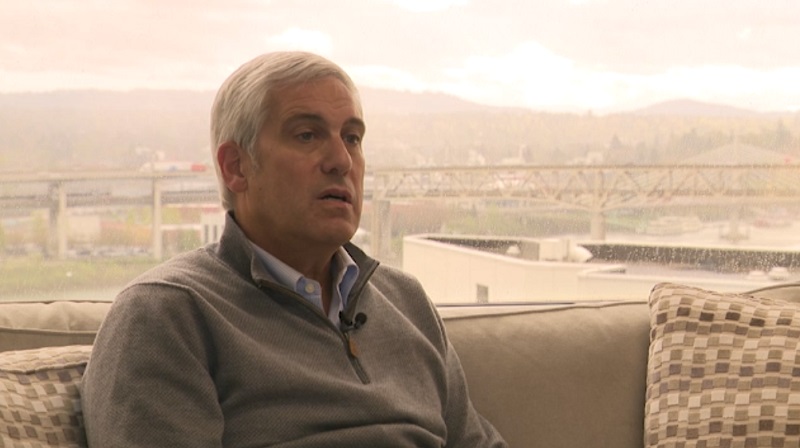
Mark said Portlanders can’t sit back and remain silent. City leaders, he said, need to act with purpose and urgency.
“It’s time for the average Portlander to start demanding more from our elected officials of what the city should look like in 6 months and what the city should look like in 3 to 5 years. We have a crisis right now that needs to be taken care of,” he said.
There are positive signs of recovery in downtown Portland compared to a year ago.
Fences that blocked off part of the downtown Park Blocks are gone. So are the boards and barricades from some shops and businesses.
There are plans to return the iconic Elk Statue — damaged during the protests — back to the place where it stood since 1900. But the wounds Portland suffered over the last few years won’t heal quickly.
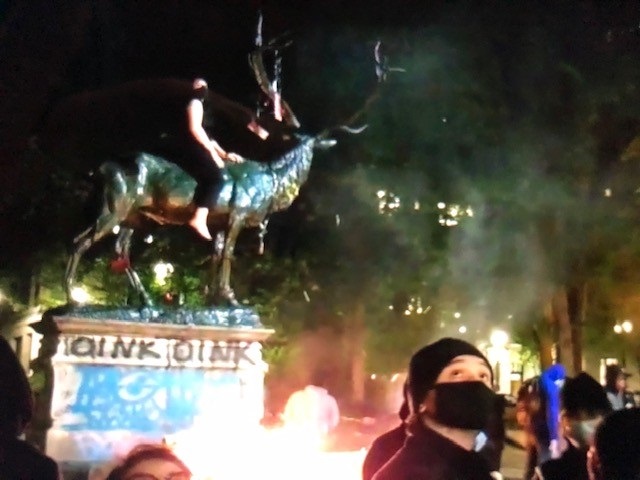
Greg Goodman, the head of the Downtown Development Group, manages more than 1.5 million square feet of residential-industrial-retail-office space. He sees people returning downtown to work as a key part of recovery but said the ongoing vandalism, gun violence and people’s own fears need to be addressed now.
“The reputation Portland has now and for the inability to deal with its issues is going to be with us awhile,” Goodman said, “even if we start hitting the ship in the right direction.”
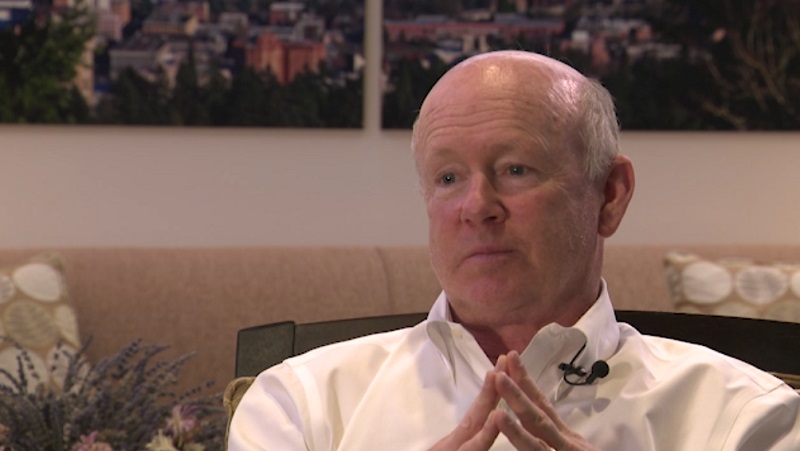
The problem, he said, is “now we tolerate everything so there is no disincentive for people to do it. When there’s assault charges and everything and people are getting released and then going out and killing somebody like happened (on a recent) weekend, what’s the punitive aspect of doing something wrong? What we’ve done now is we’ve attracted people like that to come into our community. We need to say, ‘Enough is enough.'”
For every downtown story of recovery, there is another loss.
Kassab Jewelers, targeted by looters and vandals, was boarded up for 2 years. They have reopened. But Margulis Jewelers, a downtown mainstay for nearly a century, is shutting down — and they directly blame city leaders.
“Downtown is not coming back fast enough,” David Margulis said. “The county government and the city government are talking a lot but talk isn’t working. They need action. And they’ve taken far too long for action.”
Even those committed to staying downtown are frustrated by the continuing vandalism, graffiti and violence.
Lisa Schroeder of Mother’s Bistro said she loves Portland but not the repeated vandalism she has faced lately.
“I had a window broken in September that was $6000. Another one in January, that was about $2300,” she said. “That’s quite a lot of money.”
The City Charter vote
Over the last year, KOIN 6 News has shown how Portland’s outdated and unaccountable form of city government has slowed and sometimes hurt our recovery efforts. One example is the return of the Elk Statue.
“PBOT wants one thing. The bureau of transportation wants to put a bike lane in and narrow that out. Then you’ve got planning who doesn’t want it to happen. You got 5 bureaus fighting on what to do with a sculpture,” Goodman said.
This fall Portland voters will be asked if it’s time to choose a new form of government. It’s up to everyone to make an informed decision. A city is not defined by its problems. It is defined by how the people who live there rise up to face the challenges.
“Don’t complain and not get involved,” Goodman said. “If you’re going to complain, get involved. Whether it’s time, whether it’s financial. Your series is fabulous. It makes people think. Whatever you can do to make our city better, you need to do. You have an obligation to do that, in my opinion.”
One day the Elk Statue will stand tall again, a symbol of what Portland went through and how we came back better, stronger.
Portland is not over. Its brightest days are ahead. But there is a lot of work to do.
